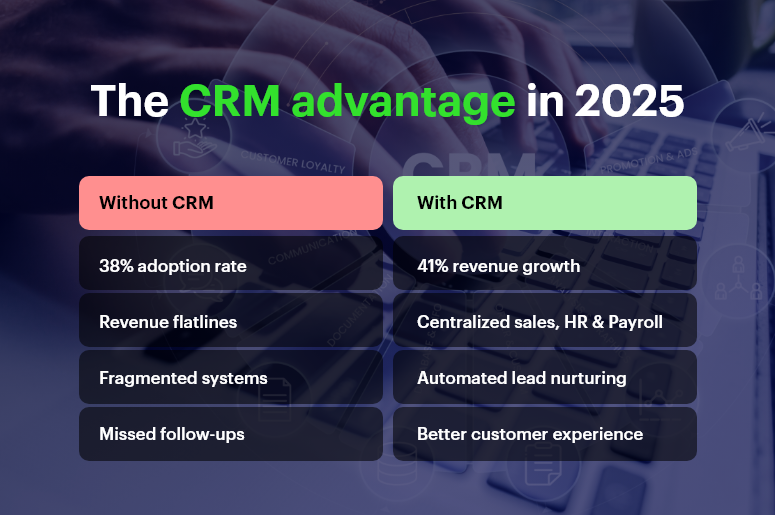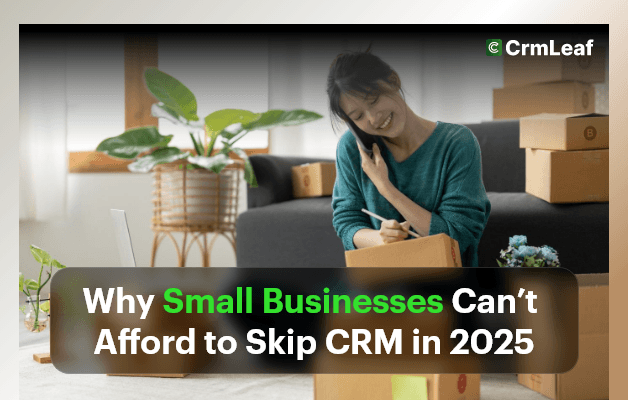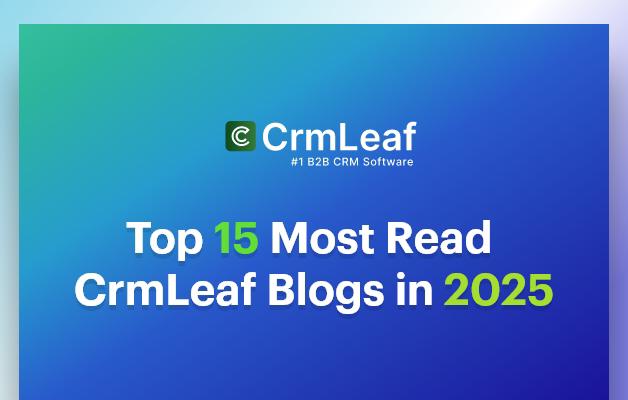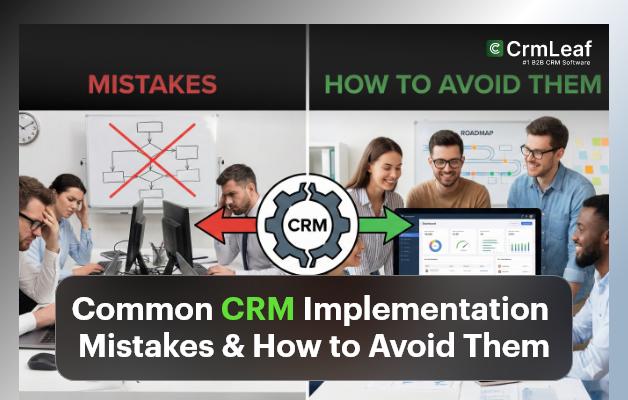You’re not alone — but that’s exactly the problem. In 2025, businesses that skip using a CRM for small businesses risk falling behind faster than ever. Customers expect personalization, teams need visibility, and data-driven decisions can’t wait for manual processes.
A recent Salesforce report found that 91% of businesses with more than 10 employees now use a CRM system. The message is clear: CRMs are no longer a luxury. They’re a necessity.
This blog breaks down why small businesses can’t afford to ignore CRM in 2025 — and how platforms like CRMLeaf’s CRM + ERP can help you streamline operations, enhance customer satisfaction, and scale with confidence.
Business Need & Importance
Why CRM Is Mission-Critical in 2025
In today’s fast-moving market, customer experience is the ultimate competitive edge. But how do you deliver great experiences at scale without dropping the ball?
That’s where a CRM for small businesses becomes vital. A modern CRM acts as your central hub for all customer interactions, giving every team — from sales to support — a single view of every customer.
Here’s why it matters more than ever:
- Your customers expect more: In 2025, buyers want tailored interactions, faster replies, and seamless service. A CRM helps you deliver all that without added headcount.
- Data is scattered: If your customer information is split between email threads, Excel sheets, and WhatsApp messages, you’re flying blind. CRM centralizes that data for smarter, faster decisions.
- Sales and marketing alignment is critical: Small businesses need to punch above their weight. CRM brings your sales and marketing teams together with shared data and common goals.
Real-World Industry Examples
- E-commerce brands need to track orders, support tickets, and customer preferences in one view to avoid churn and improve upsells.
- Consulting firms must follow up on leads promptly, track proposals, and automate follow-ups to win deals faster.
- Manufacturers often need visibility into customer orders, service requests, and payment history—all of which a CRM delivers in real time.

Best Practices & Actionable Tips
How to Use a CRM to Gain an Edge in 2025
CRM for small businesses is only effective if you use it right. Below are proven strategies to maximize impact:
🔹 Centralize Customer Data from Day One
Start by importing all contacts, deals, and interactions into your CRM. This ensures every team member works with accurate, up-to-date information — eliminating guesswork and data duplication.
🔹 Automate Follow-Ups and Reminders
Set automated workflows for tasks like sending emails, scheduling calls, or nudging leads. Never miss an opportunity just because someone forgot to follow up.
🔹 Use CRM Insights to Segment and Personalize
Group your contacts based on purchase history, behavior, or industry. This allows your marketing and sales teams to tailor their messaging for higher conversion rates and stronger relationships.
🔹 Link CRM with Your ERP for Operational Efficiency
Integrating CRM with ERP gives you full visibility — sales, inventory, invoices, and payments — all in one dashboard. It reduces data silos and helps small businesses act like large enterprises.
🔹 Track Sales Pipelines Visually
Use Kanban views or dashboards to monitor deal progress. Your team will quickly see which deals need attention, helping close sales faster and more efficiently.
🔹 Empower Your Sales Team with Mobile CRM Access
Give on-the-go access to customer data from smartphones or tablets. This is especially valuable for field sales reps who need to check info, update deals, or log notes between meetings.
🔹 Set Up Alerts for Customer Activity
Receive instant notifications when a customer opens an email, visits your site, or places a support ticket. This allows your team to respond at the right moment — turning timing into a strategic advantage.
🔹 Create Custom Dashboards for Leadership
Let business owners and managers track KPIs, revenue, and lead sources at a glance. A well-designed dashboard replaces the need for weekly reports and meetings.
🔹 Automate Customer Feedback Loops
Send post-sale surveys or feedback forms automatically. This shows customers you care, and it gives your team valuable insights for continuous improvement.
Customer Success
For example, BrightLens Studio, a 12-person creative agency, started using CRMLeaf’s CRM for small businesses to manage leads and client projects in one place.
Before implementing CRMLeaf, they relied on Trello for task tracking, Gmail for follow-ups, and Google Sheets for lead data. As a result, leads slipped through the cracks, and follow-ups were inconsistent.
After adopting CRMLeaf:
- Lead response time improved by 65%
- Client onboarding time was cut in half
- Revenue grew 35% in just six months
The integrated CRM + ERP setup gave them a single source of truth, helping them act faster and close more business—without adding overhead.
Key Takeaways
In 2025, skipping a CRM for small businesses is like choosing to navigate with a paper map in a GPS world. If you want to compete, grow, and deliver amazing customer experiences, CRM is your best bet.
With CRMLeaf’s modern CRM + ERP platform, you can:
- Track and manage customer data in real time
- Automate key business processes
- Align your teams with shared goals and dashboards
The future is digital, data-driven, and fast. Don’t let your small business get left behind.




